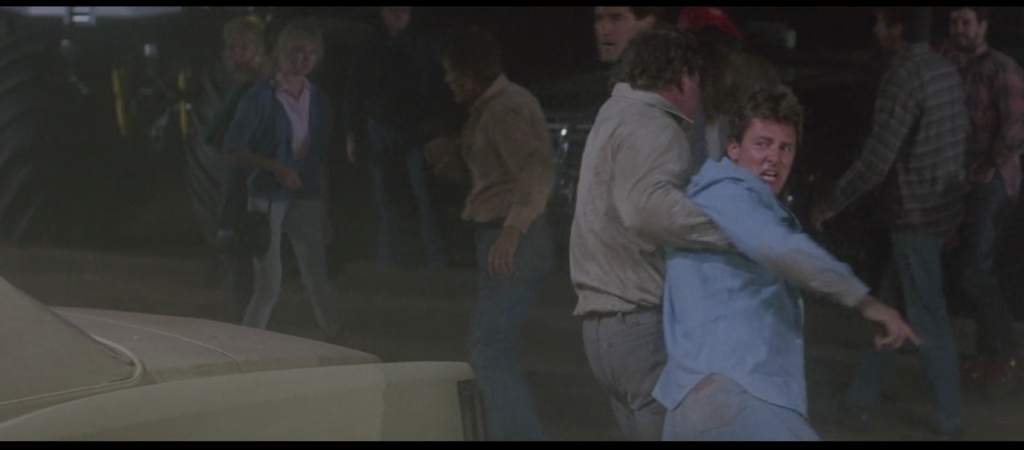In addition to “embedding a knife in a boot” and “murdering Wade Garrett” and “being Mister Clean Jeans,” Ketchum has a leg up (wink!) on his fellow goons in one other respect: He is outraged that Dalton has the temerity to whip his ass. “Son of a bitch!” he shouts at the cooler as Captain Turner pulls him away, one boot on, one boot somewhere above the streets of Jasper. It’s the same verbiage employed by Carrie Ann when she brains some drunken dipstick with a beer bottle in the middle of that full-scale riot within the bar earlier in the film. She’s just a working woman trying to make a living and not get groped or punched or forced to bear witness to other people enduring the same. Ketchum is a paid killer who just attempted to murder a man by kicking him in the skull with a knife-shoe. That man intercepted the killing Rockette maneuver and simply followed the Three Simple Rules in response. But does this keep Ketchum from acting like he’s the wronged party once things don’t go the way he wants them to? Heavens no. Not one for simply going quietly and licking his wounds is Ketchum. One last “how dare you sir,” in modern vernacular of course, is required before he drifts away, allowing Dalton to go on a date with Dr. Elizabeth Clay that will change the lives of all three of them. (Death changes your life.) In Ketchum’s climactic whinge you hear the sound of privilege. Like his boss Brad Wesley, who expresses surprise that anyone would resist him more than once as the film continues, Ketchum does not believe those he oppresses have the right to fight back. But it’s more than that: He does not believe that those he oppresses should even be able to formulate the knowledge, desire, and will the very notion of “fighting back” requires. They should be as blissfully unaware of their power in this situation as an animal that has briefly slipped loose of its bonds and, should it realize its chance for freedom is upon it, could reduce its human handler to red wreckage. But they don’t realize. Neither, according to the only form of morality the Wesleys and Ketchums acknowledge, should the hoi polloi of Jasper.
J.R.R. Tolkien once said “I think that many confuse ‘applicability’ with ‘allegory’; but the one resides within the freedom of the reader, and the other in the purposed dominion of the author” and I think about that a lot.
Tags: fight scenes, goons, j.r.r. tolkien, ketchum, road house

